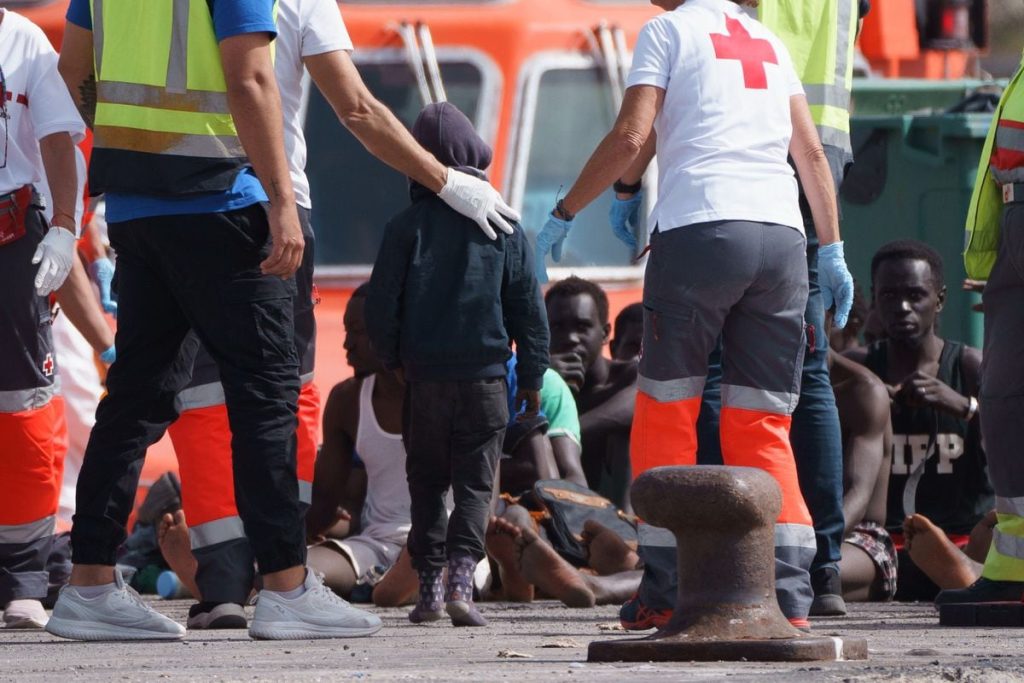The Canary Route continues to be under pressure as the Government finalizes the reform of article 35 of the Immigration Law to ensure an equitable distribution of minors arriving in the Canary Islands. The Interministerial Immigration Commission reached an agreement on the reform, which will be presented to the Canary Government next Monday. The current legislation delegates guardianship of minors (migrant or not) to the autonomous communities, and during each migration surge, territories like Ceuta, Melilla, and isolated Canary Islands bear more pressure than others. The islands have been dealing with an unprecedented situation with over 5,500 minors in their care due to the surges in arrivals since 2020. They have requested help from the central government and other communities in managing these minors, but support has been slow to materialize.
The President of the Canary Islands, Fernando Clavijo, highlighted the ongoing challenges with migration issues, with 5,500 minors still under their care and more arriving on boats. The numbers support these concerns, as the landings in the islands have increased sixfold this year, with 14,115 arrivals between January 1 and April 15, compared to 2,376 in the same period last year. These arrivals, which have mainly come through the Canary Islands, constitute 80% of all immigrants entering Spain via maritime and land routes in the first quarter of the year. Recent rescues by Salvamento Marítimo have saved over 400 immigrants in the last 24 hours, including women and children, trying to reach various islands in the Canaries.
The European Border and Coast Guard Agency, Frontex, reported that the West African route continues to see record numbers, with criminal groups in Mauritania taking advantage of the demand for transit by sub-Saharan migrants to enter the European Union through the Canary Islands. These traffickers are endangering the lives of more migrants by overcrowding them in boats. The International Organization for Migration (IOM) has also noted a 20% increase in the number of people disappearing while trying to reach the Canaries from Africa this year, compared to the same period last year. Many migrants are using the dangerous Atlantic route due to lower costs charged by human traffickers.
The pressure on the Canary Islands due to migration has led to a call for a legal distribution of minors across Spain, which will be addressed through the reform of the Immigration Law. Despite requests for support from other regions, the solidarity and distribution of minor migrants have been slow. The government is working towards finding solutions to the ongoing challenges, bearing in mind the safety and well-being of the children arriving in the Canary Islands. With the increasing arrivals and the dangers faced by migrants on the Atlantic route, it is crucial to address these issues effectively and responsibly. The coordination between authorities and stakeholders will play a key role in managing the situation and protecting the rights of migrant minors in the Canary Islands.


